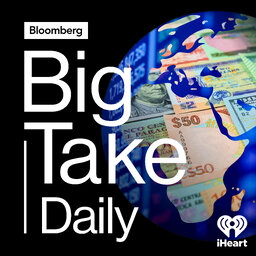Dust Off Your Dice–Dungeons & Dragons Is Back
The tabletop roleplaying game Dungeons & Dragons is approaching its 50th anniversary and it has never been more popular, attracting players of all ages to its analog charms. Now Hasbro, the toy company that owns it, is betting D&D can be brought into the digital age and become a big moneymaker.
Bloomberg correspondent Felix Gillette joins this episode to talk about why Dungeons & Dragons is having a cultural — and economic — moment, and why it might not be so easy to persuade diehard fans to pay for a digital experience. Gaming retail store owner Lauren Bilanko shares what it’s like to run a business that caters to the D&D crowd.
Read more here: Dungeons & Dragons’ Epic Quest to Finally Make Money.
Listen to The Big Take podcast every weekday and subscribe to our daily newsletter: https://bloom.bg/3F3EJAK
Have questions or comments for Wes and the team? Reach us at bigtake@bloomberg.net.
In 1 playlist(s)
Big Take
The Big Take from Bloomberg News brings you inside what’s shaping the world's economies with the sma…Social links
Follow podcast
Recent clips

Weekend Listen: Japan’s $2 Trillion ‘Dementia Money’ Cliff
18:15

Banks Really Hate Trump’s Credit Card Proposal
11:46

SCOTUS Weighs Fed Independence
19:56
 Big Take
Big Take